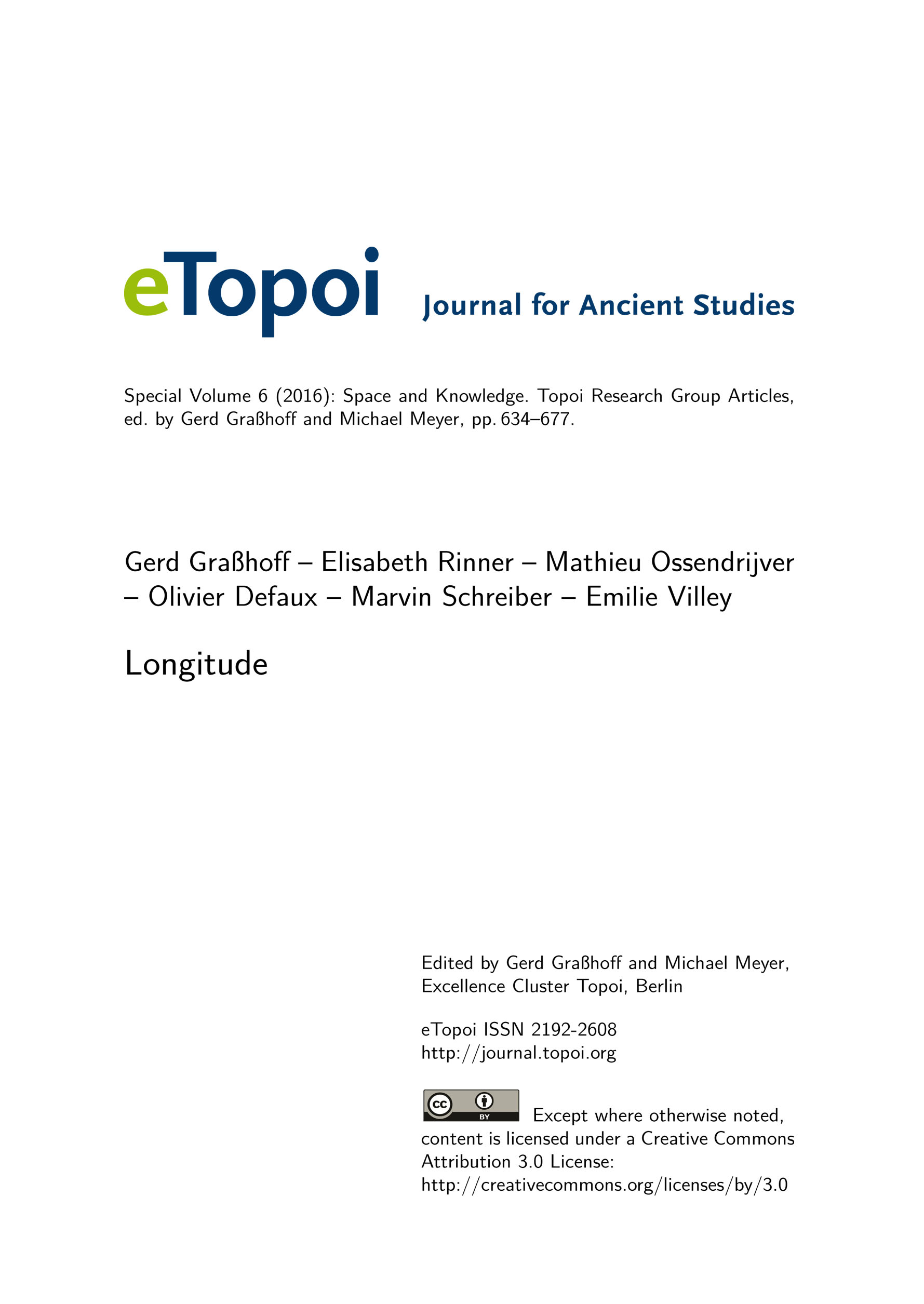Longitude
This study traces the development of the concept of geographical longitude: from the earliest known Mesopotamian evidence of geographical concepts through its incorporation into mathematical astronomy and to its transmission to ancient Greek philosophy and scholarship. We show that there is a tight connection between the observation of lunar eclipses and the development of a quantitative representation of terrestrial longitudes. It was not until Ptolemy that geographical longitude was systematically quantified through angular differences. It is demonstrated that the ancient scholars failed in their attempts to determine geographical longitude by astronomical means, and that even certain Syriac texts which specify how to determine longitude using a planispheric astrolabe were unable to resolve this scientific challenge.

